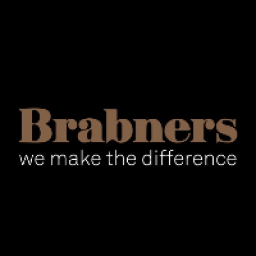Christmas parties can be a nightmare for employers, so it's best to be prepared to deal with any issues which may arise.
Work parties can be a great way to team build and boost morale by rewarding employees for their hard work throughout the year. However, they also pose risks of potential claims due to issues such as sexual harassment, alcohol-fuelled arguments, discrimination and unauthorised absenteeism.
As a result, it is recommended that employers take a moment to consider the potential employment law issues that may arise over the festive period.
The first thing for employers to take into account is that even if office parties are held off site, and outside of office hours, they can still be considered ‘working time’. This means that employers may be liable for incidents that occur at the party.
Our practical guide may help employers to avoid the unwanted consequences of the party...
Invitations
Many employees may not celebrate Christmas for religious reasons, and as a result, employers should be careful to not exclude these employees from the festivities. Rather than referring to the event as a ‘Christmas party’, it may be preferable to use an alternative label such as ‘festive party’ or ‘holiday party’. These labels may encourage more employees to become involved in the event.
Some employees may not consume alcohol due to religious reasons, as a result we recommend that soft drinks are offered as an alternative to ensure that all attendees’ needs are catered for. The same goes for any dietary requirements.
Consideration should also be given to the timing of the event, as some employees may have caring responsibilities. As a result, if the event is taking place outside of working hours, you may wish to make it clear that attendance is voluntary and not required.
Policies
As the office Christmas party will be considered to amount to working time, it is recommended that employers ensure they have adequate polices in place, which effectively communicate to staff members the behaviour that is expected of them.
These policies can include those dealing with equal opportunities, anti-bulling and harassment, alcohol and substance misuse and a clear disciplinary policy.
It is important that these polices are not simply placed in a file and never used. Where incidents arise, we recommend that employers grasp the nettle and take positive action to deal with any complaints.
While these polices may appear to dampen the festive spirit, they offer valuable protection for employers who can use them to help demonstrate that efforts have been made to protect employees should a claim arise.
Harassment
As the Christmas party can blur the lines between professional and personal lives, especially when alcohol is involved, employers should be aware of the issue of harassment. This is defined as unwanted conduct that has the purpose or effect of violating someone’s dignity or creating a hostile or intimidating environment, and this conduct occurs as a result of a protected characteristic, such as age, sex or religious belief.
Tips for avoiding vicarious liability as a result of harassment include ensuring that all parties are aware of the behaviour expected of them through clearly communicated polices, and also taking immediate action in relation to any incidents that occur.
Social media
Many employees may be tempted to post photographs of the Christmas party on their respective social media accounts. These photos may damage the company’s reputation or infringe on the privacy rights of employees. It is therefore advisable to clearly communicate to employees whether social media postings are permissible, either through a general policy or specific email sent before the event.
The morning after
Employers should be clear what is expected of employees the day following the party. For example, if the next day is a working day, employers may permit a slightly later start time. Regardless of the approach to be taken, employees should be made aware of the employer’s attitude towards lateness or absenteeism the following day, including the possible consequences of failing to meet the standard required. This clear communication will leave the employer with a range of options in terms of disciplinary action should employees fall short of the mark.
While the above advice may echo the sentiments of Ebenezer Scrooge, a little forethought from employers can result in having a very merry Christmas and a fantastic office party.
Christine Hart
Brabners LLP
christine.hart@brabners.com
 East Lancashire Hospice
East Lancashire Hospice









